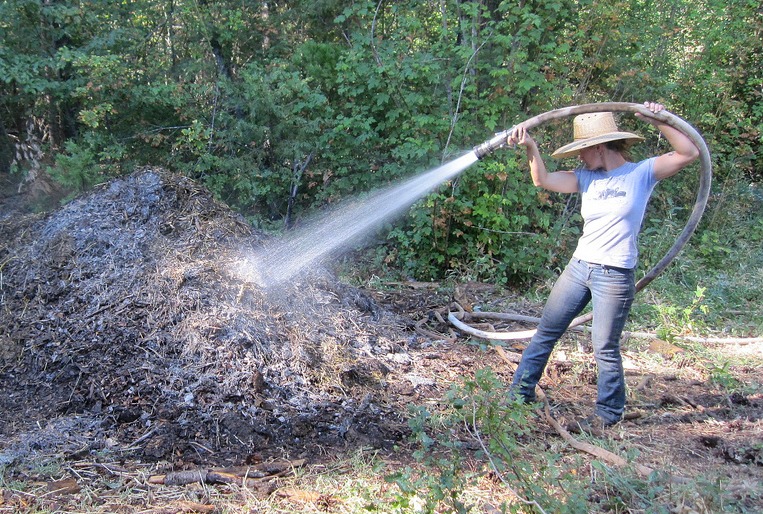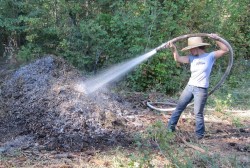Send your question to Umbra!
Q. Dear Umbra,
I’ve always enjoyed relieving myself out-of-doors as a way to reduce my water usage, but I recently read that certain chemicals that we cannot metabolize (caffeine, for example) can be pollutants but get removed in the water treatment process. As a coffee addict, I don’t want to be sending excess caffeine into Puget Sound to get the salmon and orcas all hopped up, but I do want to flush less. Is it safe to urinate in the compost pile to enrich its nitrogen content, or should I use the toilet to make sure I’m not polluting the water?
Pondering Ethical Excretion
Seattle, Wash.
A. Dearest PEE,
Until your letter arrived, I hadn’t realized that this column has been experiencing a bit of a dry spell. Your letter reminded me of the good old days, when my inbox was positively overflowing with pee-related queries.
You are right that our liquid excretions can contain pollutants. These include many residues of our modern life, from caffeine to pharmaceuticals to glyphosate, the active ingredient in Monsanto’s RoundUp herbicide [PDF]. That is why we generally send our urine down the pipes into a septic tank or to a wastewater treatment plant.
These plants have Top-Secret Methods for getting your goopy, poopy wastewater into a clean enough state that it can be discharged back into local waterways. It seems they’re 60-70 percent efficient at removing caffeine, according to a researcher from Portland State. However, they’re not so good at removing pharmaceuticals or pesticides, which is a bit of a concern (it appears technologies do exist that could address that, but they are spendy).
So using the toilet doesn’t guarantee that you won’t pollute. And frankly, any toxic substances in your urine are outweighed by its magical powers: It happens to be an excellent fertilizer, chock full of nitrogen and phosphorus. Many people swear by its power in the garden – including at least one member of British parliament — and studies have shown that adding human urine to the soil along with compost helps plants grow better. Your peeing-in-the-compost plan will not only save water, it could help your compost break down faster, and it will almost certainly make it richer and more effective. Besides which, your friendly soil microbes will probably break down the pollutants before they have a chance to get to the orcas. Call it nature’s water-treatment plant.
It seems there is a whole movement afoot to encourage this use of urine. Let us turn to Carol Steinfeld, author of Liquid Gold: The Lore and Logic of Using Urine to Grow Plants: “Every day, Americans excrete about 90 million gallons of urine. That day’s urine contains an estimated 7 million pounds of nutrients in the form of nitrogen. By some estimates, that’s enough to fertilize up to 31,963 acres of corn for an entire year. And over one year, Americans ‘piss away’ enough nitrogen to fertilize almost 12 million acres of corn — about twice the corn grown in Indiana.”
Holy hoosiers that’s a lot of wasted potential. So I endorse your plan. As I’ve said before, as long as you’re not peeing into streams or storm drains, you’re on pretty safe ground. I would also refrain from adding solid excretions to the garden (although there are other ways to compost No. 2).
If you ever get to feeling squeamish about your outdoor activities, you could look into getting a urine-diverting toilet, which allows you to capture your waste in separate containers. Meanwhile, keep enjoying your ethical excretions. As for me — I gotta go.
IP Freely,
Umbra



